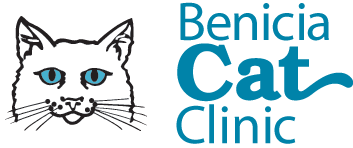Educational Articles
-
Many pet owners decline to take their cats for regular veterinary care because they perceive that their cats resent and fear the visits. Fear, anxiety, and stress (FAS) are rooted in responses to stressful events, and result in both physiologic and behavioral changes. Fortunately, there are many things that can be done on behalf of cats who experience FAS around their visits to the veterinarian. Once you arrive at your veterinary clinic, the practice team will help to create a Fear Free experience for her and for you.
-
A fecal Baermann is a special fecal test used to diagnose infection by parasites that pass larvae in stool instead of eggs. A small golf-ball sized sample of fresh stool is mixed with warm water to encourage larvae to separate from the fecal material to allow identification. The most common parasite diagnosed with a fecal Baermann is lungworm, which typically causes signs of coughing.
-
Cat food has been made so palatable that it can easily create gluttonous behavior. Meal feeding and portion control are important to prevent obesity. Owners should not give in to begging behavior. Cats that are still hungry after their meal can be supplemented with snacks such as green vegetables recommended by your veterinarian. Cats that eat too quickly can be fed creatively to slow down eating.
-
The goal of feeding growing kittens is to lay the foundation for a healthy adulthood. Portion feeding is recommended to maintain a good body condition. Proper nutrition is critical to the health and development of kittens, regardless of breed, and it directly influences their immune system and body composition. An optimal growth rate in kittens is ideal; it is a slow and steady growth rate that allows the kitten to achieve an ideal adult body condition while avoiding excessive weight and obesity. Growing kittens need higher amounts of all nutrients in comparison to adult cats, but excess energy calories and calcium can create serious problems. Preventing obesity must begin during the weaning stage and continue through to adulthood and old age. Together with your veterinarian and veterinary healthcare team, you can help your kitten grow into as healthy of an adult cat as possible.
-
Over 60% of cats in North America are either overweight or obese, so paying attention to the balance between activity and calorie intake is important. Nutrient formulation and portion control are the two most important aspects of weight control. Once you have chosen a formula and have calculated a reasonable daily portion based on calorie density, the best way to stay on track and prevent unwanted weight gain is to combine portion control with regular, formal weigh-ins.
-
Orphaned kittens will need extra care for survival to compensate for the loss of their mother. Kittens must be kept warm, very clean, and fed frequently using an appropriate amount and type of formula by bottle or less often tube feeding. To ensure nutrition is adequate, daily weight checks should be performed for the first 4 weeks, then weekly thereafter. Kittens must be stimulated to urinate and defecate. Environment, feeding instruments, and the kitten must be kept meticulously clean as they are more susceptible to infection than kittens cared for by their mother.
-
Interactive feeders that require a pet to think and work for their food call upon the natural instinct to hunt or forage. Besides being fun, these food puzzles may help both physical and behavioral problems in cats and dogs. When used correctly, interactive feeders may benefit pets that eat too quickly, become bored when alone, or suffer from separation anxiety.
-
This handout discusses the need for ensuring your pregnant cat is receiving adequate nutrition to make sure both she and her kittens thrive during this time of increased demands on her body. Feeding and diet suggestions are provided.
-
Special attention needs to be given to a cat’s nutrition before and during her pregnancy to promote a healthy birth and healthy kittens. It is important to maintain a good body condition throughout pregnancy as her weight increases. A good quality kitten or all life stages diet is recommended during the entire pregnancy; ideally one evaluated using feeding trials. This diet is usually fed throughout the lactation period, but attention to body condition is essential here as well, and the diet may need to be restricted if there is a small number of kittens or the cat starts becoming overweight. Weaning is usually aided by feeding significantly less food for a few days while restricting access to nursing to decrease milk production.
-
Feeding your cat can be easily accomplished with mealtimes on a set schedule. At least two meals per day are best for your cat. The use of food toys or interactive feeders adds interest to your cat’s mealtime. Routines help your cat adjust to changes that may occur in your home as well as allow you to monitor her health.

